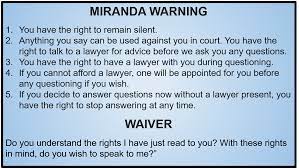The federal and state constitutions grant criminal suspects various protections to ensure their trials are conducted fairly. They have the right, for example, to cross-examine any witnesses who offer testimony against them. There are several exceptions to the general rule, though, as shown by a recent decision in a case where the defendant claimed the court accepted improper evidence in his domestic abuse trial. If you’ve been accused of domestic violence, it’s a good idea to speak with a Michigan criminal defense lawyer about your options.
The Defendant’s Arrest and Trial
It is reported that the suspect was charged with his third offense of domestic violence. The prosecutor introduced a statement provided by the defendant’s son during a preliminary investigation of another domestic abuse case involving the defendant into evidence during the trial. The defendant was found guilty and sentenced to a jail term ranging from thirteen to fifteen years. He appealed, claiming that the trial court erred by admitting his son’s statement into evidence, on the grounds that it violated his fundamental right to confront a witness against him.
The Right to Confront Witnesses
The court clarified on appeal that unless there is a misuse of discretion, a trial court’s decision that evidence should be admitted should not be overturned. A court commits an error of law or abuses its discretion when it makes a decision that is beyond the realm of just and fair outcomes. Continue reading
 Ellen K. Michaels Criminal Defense Blog
Ellen K. Michaels Criminal Defense Blog












